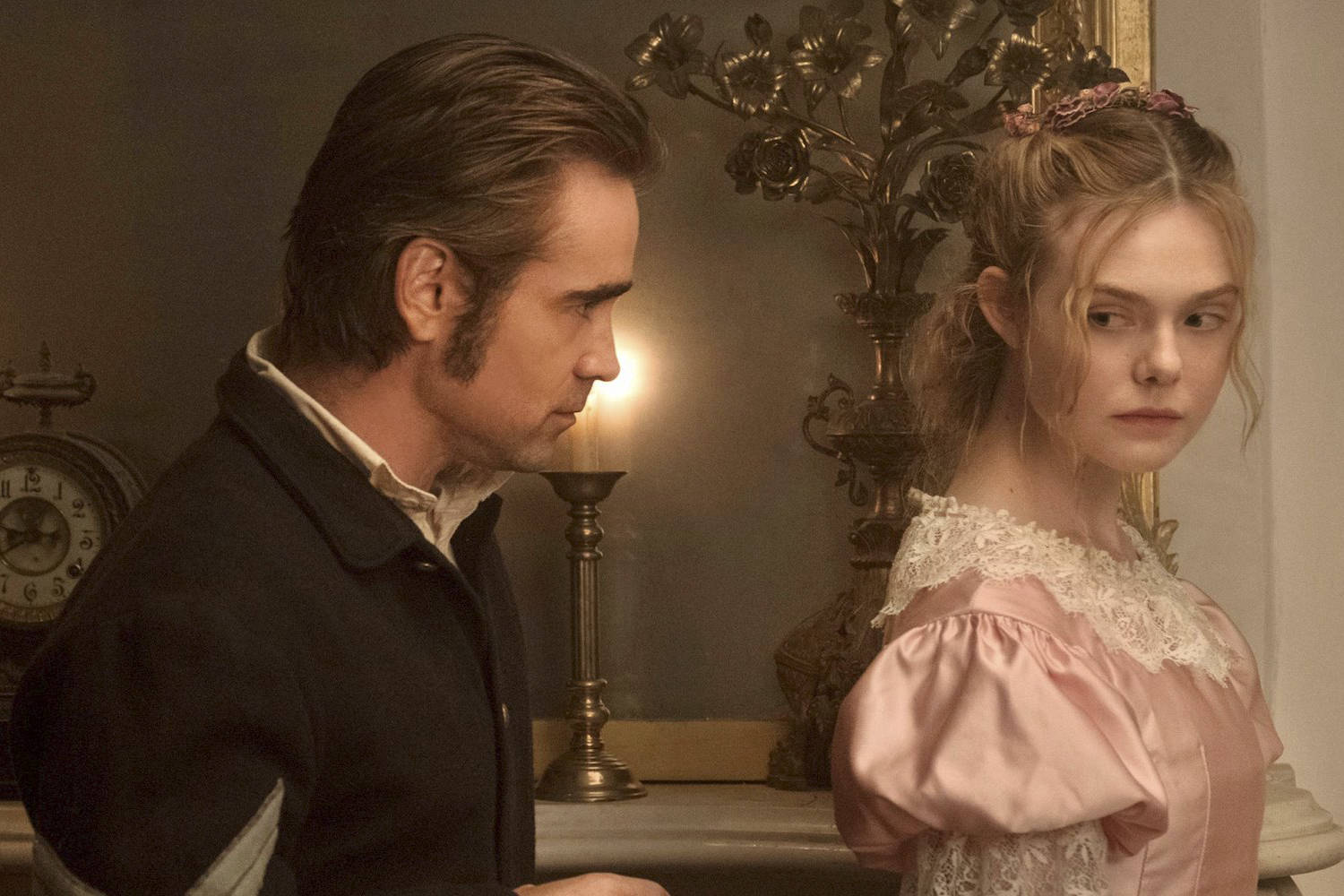The opening of The Beguiled is lush on every level: Mist hangs in the moss-draped trees as a young girl goes out mushroom-picking, her singing underscored by an uncanny low rumble. We’re in the Civil War South, so that rumble must be battle, a muffled sound that barely intrudes on the idyllic scene. This is director Sofia Coppola in signature mode, creating voluptuous sights and sounds that disguise a serious deficiency of ideas. The Beguiled may be the most inert of Coppola’s films, a vapid cruise through an isolated hothouse. Along with its other shortcomings, it’s not nearly as interesting (and nowhere near as perverse) as the 1971 film that precedes it, directed by Don Siegel and starring Clint Eastwood.
Both films are derived from a 1966 novel by Thomas Cullinan. The setting is a Virginia school for girls, where headmistress Martha Farnsworth (Nicole Kidman in the new film) runs a strict operation in a secluded, once-genteel manor house. The little mushroom-picker finds a wounded Union corporal (Colin Farrell, turning on the Irish charm) and helps him back to the mansion. Disabled by a leg injury, he is nursed by the women, who experience his presence in various ways, most of them contrary to their moral education. Hardest hit are Martha’s virginal assistant (Kirsten Dunst) and a restless older student (Elle Fanning). The corporal flatters and flirts in hopes of staying alive—there’s no guarantee the women won’t hand him over to passing Confederate troops.
Coppola creates some painterly images while gliding through this scenic situation (cinematographer Philippe Le Sourd shot on 35 mm film). For all the suppressed sexual urges coursing through the house, this is another of Coppola’s studies of privileged females trapped in a gilded prison, a subject we might presume is close to the heart of this child of Hollywood royalty. Her best film, Lost in Translation, drew its wistful enchantment from an authentic pool of loneliness, with a finely tuned sympathy for the little gestures people make when they recognize a kindred spirit in an overwhelming environment. By comparison, The Beguiled is a work of decoration.
The Beguiled won Coppola the Best Director prize at the Cannes Film Festival in May, but since then she has been found ideologically impure by today’s Internet version of the Cultural Revolution. The Keepers of Wokeness are offended that, in response to a question during a GQ interview, Coppola did not know what the Bechdel Test was (whether a film has two named female characters who talk about something other than men). The film easily passes the test, and perhaps we could forgive Coppola for spending less time parsing Twitter memes than developing her projects.
The other complaint is more interesting. One main character has been excised from this adaptation: an enslaved woman at the house. Coppola has said she considered slavery too huge and serious a subject for the rather gothic material; she wanted to focus on the subject of female sexual desire. That’s a credible calculation, and Coppola has the right to adapt the material her way. But the retreat from complexity does say something about the shallowness of the approach.
In the 1971 film (initiated by Eastwood in his early flush of stardom, and a box-office flop), the enslaved woman is there, and happens to be—without condescension or sentimentality—the shrewdest and toughest character in the movie. There’s also a change in the soldier: Farrell plays the guy as a bit of a rogue, but understandably keen on survival. Eastwood, in a marvelously fatuous performance, plays a lying jerk, whose horndog aggressions result in his ultimate reward. The movie has its share of castration anxiety, but it’s also a scathing indictment of the soldier’s smug sexual assumptions—if the guy had kept his pants zipped, he might have come out all right. Given these changes, and the overall gloss, it’s hard to know what Coppola’s point is, other than to revel in a cauldron of suppressed lust that betrays no connection to war, slavery, or anything that exists outside this handsomely dressed no-man’s land. The Beguiled, Rated R. Opens Fri., June 30 at the Egyptian Theater, AMC Southcenter. film@seattleweekly.com






